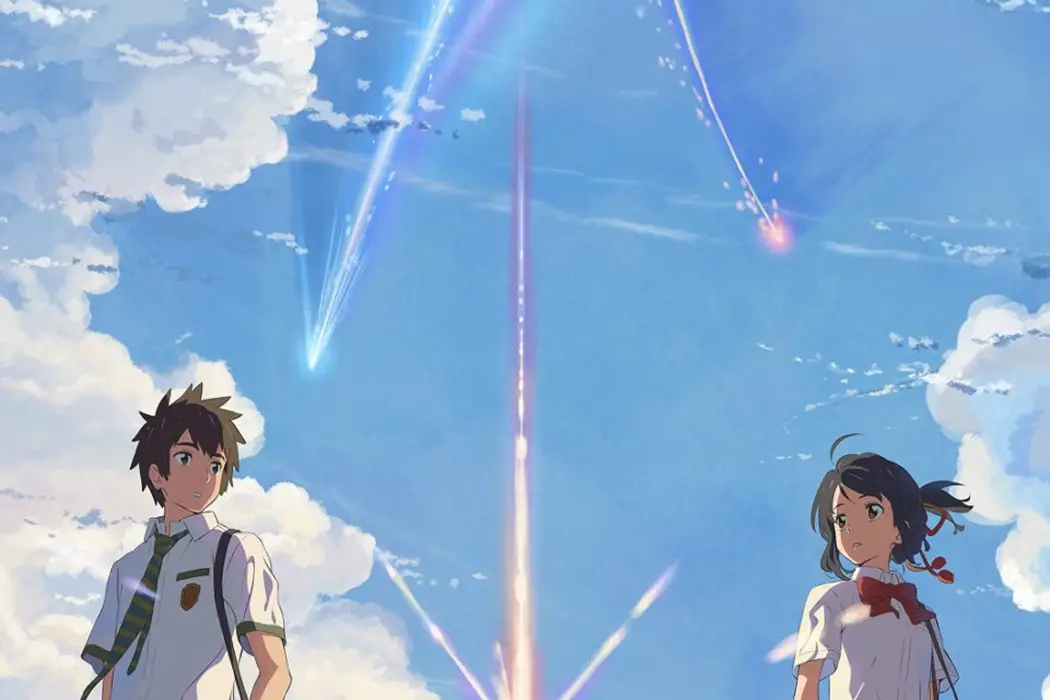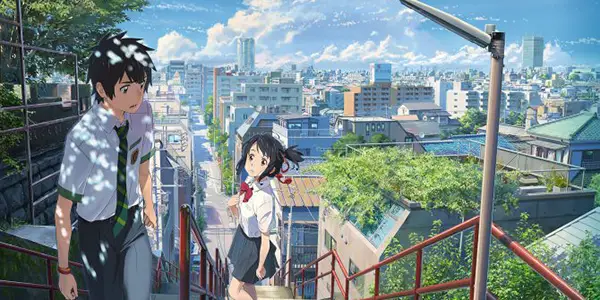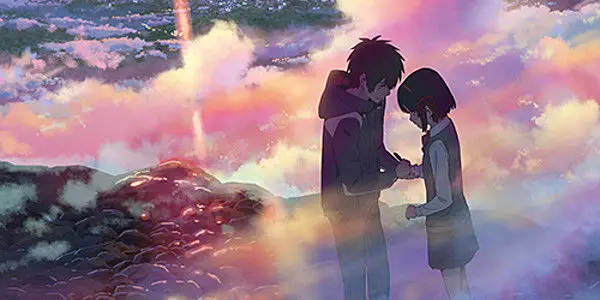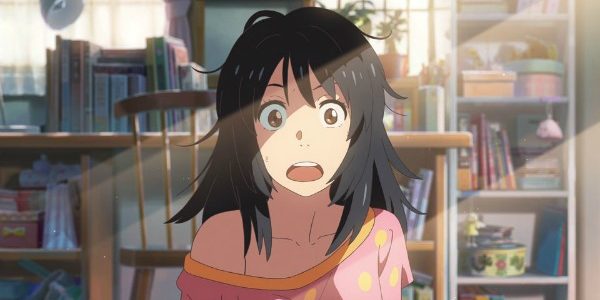YOUR NAME: New Life For Japanese Animation

Former film student from Scotland turned writer and film reviewer.
In August 2014, Studio Ghibli announced it would cease production after the retirement of its co-founder Hayao Miyazaki. This was an especially huge blow for animation enthusiasts, because Studio Ghibli was creating animation unlike anywhere else. In the western world, the rise of Pixar had cemented computerised animation and, as a result, less and less hand drawn work was being produced.
More than that, Studio Ghibli was creating stories unlike anywhere else; you knew a Ghibli film when you saw one, by its style and its themes. Given the popularity, and decline of that powerhouse, the question is: who steps into the void?
Although he will probably cringe at such comparisons, inescapable though they are, Makoto Shinkai has been building a reputation as the heir apparent to Miyazaki for a number of years; with Your Name, he has finally caught the imagination of his nation and proven himself to be a talent not unlike the former master of Studio Ghibli.
Taki & Mitsuha
Your Name is a difficult film to pin down to any one genre; it begins as a body-swap movie centred around an ostensible teen romance. Teenagers Taki and Mitsuha are from very different regions of Japan; he from the somewhat homogeneous city of Tokyo, she from the quiet village of Itomori – steeped in traditional Japanese culture. Mitsuha feels suffocated by the insular village she lives in, whereas Taki appears to long for a connection to someone in the busy, bustling city he often gets caught up in.

One day, quite unannounced, they wake up in each other’s bodies. There’s opportunity here for the usual comedy associated with body swap films of the early nineties (think, for example, Freaky Friday), but Shinkai isn’t too concerned with superficial ramifications – aside from a very humorous recurring motif involving Taki’s obsession with Mitsuha’s breasts. Instead, the teenagers explore the lives of each other in an unexpectedly tender way.
After some mishaps involving minor setbacks such as dialect (an English speaking audience may not pick this up so easily, and it’ll be interesting to see how the English dub handles Japanese-gendered language), and uncharacteristic behaviour, Taki and Mitsuha leave notes for each other on their arms, notepads, and phones giving instructions on how to live each other’s lives. They learn to cooperate in order to manage their lives and achieve what any normally functioning couple would: how to compromise and coexist. As it does this, we see the juxtaposition between contemporary Japan and the rural lifestyle of Itomori by focusing on the lush, verdant surroundings of the latter, and the technological, gleaming world of the former.
As wonderful as this section is to watch unfold, it’s only the beginning. The body swapping eventually comes to a random stop, leaving Taki to go in search of Mitsuha. It’s here the film takes quite a different turn, involving a natural disaster which nods to the recent earthquake in Tohoku. This section can feel a little bogged down in exposition, as the narrative begins to unfurl and certain twists and turns are revealed. To explain further would be to rob the audience, but suffice it to say that, even though it gets a little plot heavy and the scenes lose the fizz and chemistry which makes the opening so enthralling, it holds you and wills you to engage to the end.

Although the comparisons between Shinkai and Miyazaki are in some ways quite apt, they are also reductive and unfair to Shinkai. Whereas Miyazaki‘s work is primarily based upon Japanese culture and ancient history – for example Princess Mononoke‘s feudal-era Japan, or Spirited Away‘s mythical bathhouse – Shinkai‘s is firmly grounded in a contemporary setting. This is useful for examining the ways in which humans interact with each other in the 21st century – such as how Taki and Mitsuha primarily use their phones to collaborate with each other. Another key difference is the sheen which adorns Your Name. It’s quite simply one of the most beautiful looking films you’ll see this year. A stunning moment around the halfway mark sees comets flare across the sky. It’ll floor you completely.
A Box Office Hit
Shinkai is no stranger to this kind of filmmaking. Although shorter than feature length, his 2013 work The Garden of Words is a beautiful meditation on companionship, and what Shinkai refers to as ‘lonely sadness’. Similarly, 2007’s 5 Centimetres Per Second focuses on love torn apart by distance, and the lasting effect that has on two young lovers. It’s a theme Shinkai returns to frequently – the obstacles that love encounters, such as time and distance.
In Your Name, Taka and Mitsuha’s love for each other clearly grows from the necessity to live in the life of the other; to understand each other’s needs, because those needs are now intrinsic to their own lives as well. It’s handled subtly, allowing each little moment and revelation to unfold quietly, such as Mitsuha-as-Taki arranging a date with Taki’s co-worker Miki, or Taki-as-Mitsuha becoming more popular and open with the students in her school. The buildup is handled slowly, and by the conclusion, you feel as much a part of their lives as if you yourself had body-swapped with them.

In its native country, Your Name has proven to be a box office hit, becoming the fifth highest grossing film of all time in Japan, and the second biggest domestic hit behind Spirited Away. It is also the only anime not bearing the Miyazaki name to earn over $100 million, leading to those inevitable comparisons. Now that Shinkai‘s star is rising and his popularity in Japan has been bolstered, it’ll be interesting to see what he does next.
Conclusion
Your Name feels like a fresh and innovative take on a well-worn genre – injecting new life into old themes. Makoto Shinkai continues his upwards trajectory after a series of wonderful films focusing on heartache and bittersweet romance. Your Name is his finest yet.
Though he has been heralded as the new Hayao Miyazaki, there are those who feel this tag is unfair to Shinkai and that his work is thematically and visually separate from Studio Ghibli. What do you think?
Your Name was released in the US for a short run on December 8th, and was in limited theatres in the UK beginning December 4th. For all international release dates, click here.
https://www.youtube.com/watch?v=hRfHcp2GjVI
Does content like this matter to you?
Become a Member and support film journalism. Unlock access to all of Film Inquiry`s great articles. Join a community of like-minded readers who are passionate about cinema - get access to our private members Network, give back to independent filmmakers, and more.













